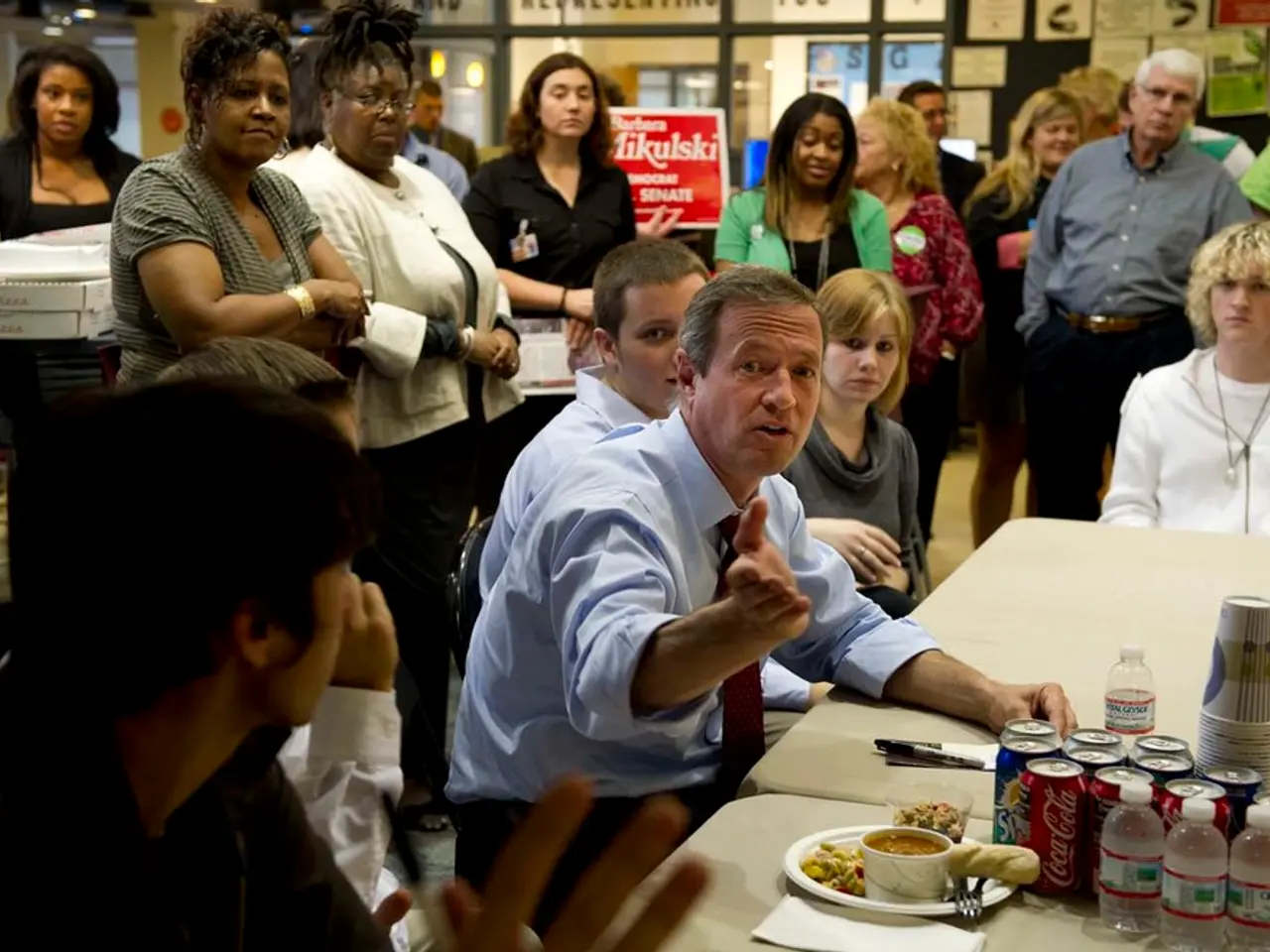Tenants Cry Foul: German Living Costs Soar
Tenant union in Germany files a legal complaint
In the heart of 2025, housing has turned into a financial precariousness for many, according to the head of the German Tenants' Association (DMB), Lukas Siebenkotten. Often, tenants find themselves shelling out more than 40% of their income on rent, with a paltry 3.1 million households having to fork over more than 40% of their monthly earnings on rent alone.
The Skyrocketing Cost of Shelter
The DMB's resounding criticism of the federal government's housing policy is as biting as it's ever been in 2025. Siebenkotten unsparingly labels the policy record of recent years as catastrophic. Yet, he gives props to the newly formed black-red federal government for taking tentative steps in the right direction.
The Federal Government's recent decision to stretch the rent cap for new leases is a welcome move, he admits, but it needs to go further. Siebenkotten suggests updating the exception rule of the rent cap for new structures built after 2014 to a more recent date, possibly 2023.
Economy Corner: Construction Industry Predicts Loss Despite Special Assets
In essence, the rent cap limits the increase in rent for tenants living in tight housing markets by preventing landlords from charging new tenants more than 10% above the local average rent. However, certain exceptions do apply, such as new buildings rented after 2014 and drastically modernized apartments.
Siebenkotten Steps Down After 18 Years at the Helm
The DMB, comprised of 15 state associations and more than 300 local tenants' associations, is poised to address these issues at the 71st German Tenants' Day in Rostock-Warnemünde. Around 400 delegates will converge for four days, debating and voting on over 70 motions, and selecting a successor for Siebenkotten, who is stepping down due to age.
Politicians and Academics Convene to Address the Crisis
On the final day, key demands on rent law and housing policy will be debated and passed, with federal Minister of Justice Stefanie Hubig and the President of the Institute for Economic Research (DIW), Marcel Fratzscher, expected to join the conference.
- Rent Increases
- German Tenants' Association
- Rent Cap
- Federal Government
- Housing Construction
- Siebenkotten Steps Down
Behind the Scenes
The rent cap, introduced in 2015, restricts landlords from charging new tenants more than 10% above the local average rent, which applies only in designated "tight housing markets" that span over 400 municipalities across 13 federal states and cover major cities like Berlin, Munich, Hamburg, Cologne, Stuttgart, and Frankfurt[1][5]. This regulation is determined by federal states based on local market conditions[5].
New buildings constructed after October 2014 are exempt from the rent cap, while there is a separate rent cap (Kappungsgrenze) that limits rent increases within existing leases to 15-20% over three years, applicable nationwide and regardless of property age[5].
In May 2025, Germany’s Conservative-led government extended the rent cap until at least December 31, 2029. The policy maintains the 10% cap above local comparable rents for new leases in key high-demand urban areas[2][3]. The extension strengthens tenant protections and partially restrains rent growth, particularly in costly cities. However, it also imposes challenges on landlords and real estate investors, constraining revenue growth and valuation, particularly for older, unmodernized buildings[2]. The policy creates incentives for new construction (which is exempt) and for modernization only if rental increases are managed within the new tighter exemption limits[2].
- The German Tenants' Association (DMB), led by Lukas Siebenkotten, has been vocal about the high living costs, especially rent, which consumes over 40% of many tenants' income.
- The Federal Government's policy on housing, heavily criticized by Siebenkotten, has been labeled as disastrous. However, he commends the recent decision to extend the rent cap for new leases, but suggests updating the exception rule for new structures built after 2014.
- As Siebenkotten steps down due to age, the DMB has plans to address issues related to rent increases and housing policy at the 71st German Tenants' Day, and federal Minister of Justice Stefanie Hubig and the President of the Institute for Economic Research (DIW), Marcel Fratzscher, are expected to attend the discussions.







